I see { } are used for closures, and then I believe when a $ is put in front of braces, it is simply doing a variable substitution within a string. I can't find the documentation on how the $ works in the reference ... hard to search on it unfortunately, and the Groovy String documentation is lacking in introducing this. Can you please point me to the documentation and/or explain the "$" operator in Groovy -- how all it can be used? Does Grails extend it at all beyond Groovy?
4 Answers
In a GString (groovy string), any valid Groovy expression can be enclosed in the ${...} including method calls etc.
This is detailed in the following page.
- 8,084
- 8
- 48
- 62
- 13,961
- 2
- 36
- 40
-
Thanks for pointing that it's in the GString section. The String section used ${} in one of its examples and didn't introduce it. – Ray Aug 03 '11 at 17:34
-
2I never knew one could do so much in a GString. – nburr Feb 26 '18 at 18:41
-
4One precaution that some of us may miss, do use double quotes to make it work i.e 'Hello ${varSam}' will not work but "Hello ${varSam}" – old-monk May 09 '18 at 16:15
Grails does not extend the usage of $ beyond Groovy. Here are two practical usages of $
String Interpolation
Within a GString you can use $ without {} to evaluate a property path, e.g.
def date = new Date()
println "The time is $date.time"
If you want to evaluate an expression which is more complex than a property path, you must use ${}, e.g.
println "The time is ${new Date().getTime()}"
Dynamic Code Execution
Dynamically accessing a property
def prop = "time"
new Date()."$prop"
Dynamically invoking a method
def prop = "toString"
new Date()."$prop"()
As pointed out in the comments this is really just a special case of string interpolation, because the following is also valid
new Date().'toString'()
- 185,044
- 174
- 569
- 824
-
1Isn't your 2nd usage just an example of the 1st? As you can call methods by their string name like `new Date().'toString'()`? So it's just the first usage case to build a String which is then used to access methods/properties? – tim_yates Aug 03 '11 at 10:09
-
1@tim - you're right, I guess what I'm really showing are two practical usages of string interpolation rather than two usages of $. I'll try and make this clearer – Dónal Aug 03 '11 at 11:24
-
+1 from me :-) Sorry I was being slightly pedantic, as it's a good example of where `$` is really useful – tim_yates Aug 03 '11 at 11:32
-
Cool - thanks for showing an example of dynamically accessing a property and dynamically invoking method – Ray Aug 03 '11 at 17:55
-
I'd like to mark yours as an answer as well, or raise the points, but it is not allowing me to. Thanks for the grails clarification and examples. – Ray Aug 03 '11 at 18:03
-
if the string containing $variable, arrives from a select on the database, can it work? – andQlimax Apr 22 '21 at 08:38
$ is not an operator in Groovy. In string substitution it identifies variables within the string - there's no magic there. It's a common format used for inline variables in many template and programming languages.
All special Groovy operators are listed here: http://groovy-lang.org/operators.html
- 8,084
- 8
- 48
- 62
- 39,252
- 15
- 98
- 100
